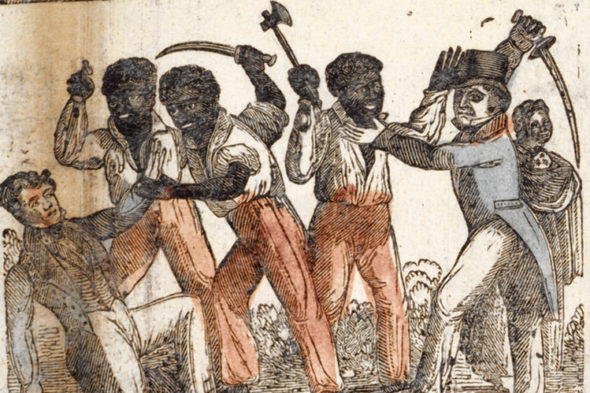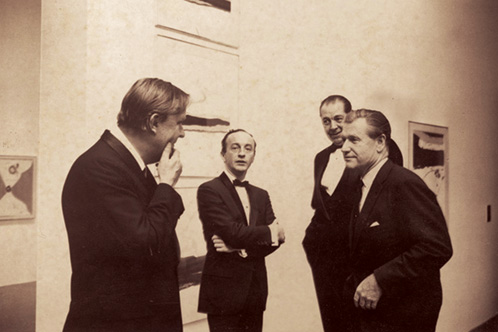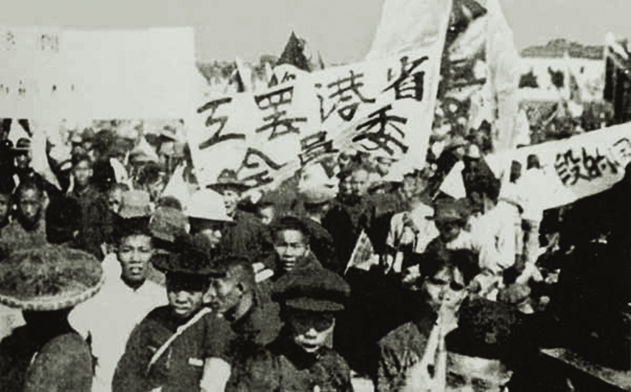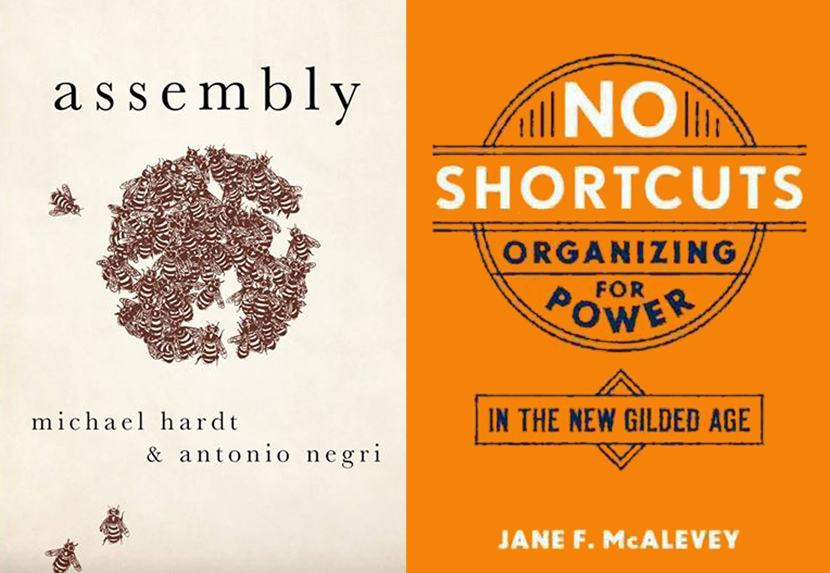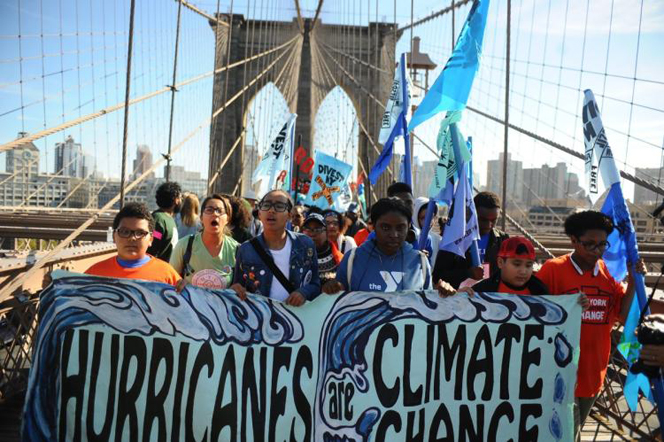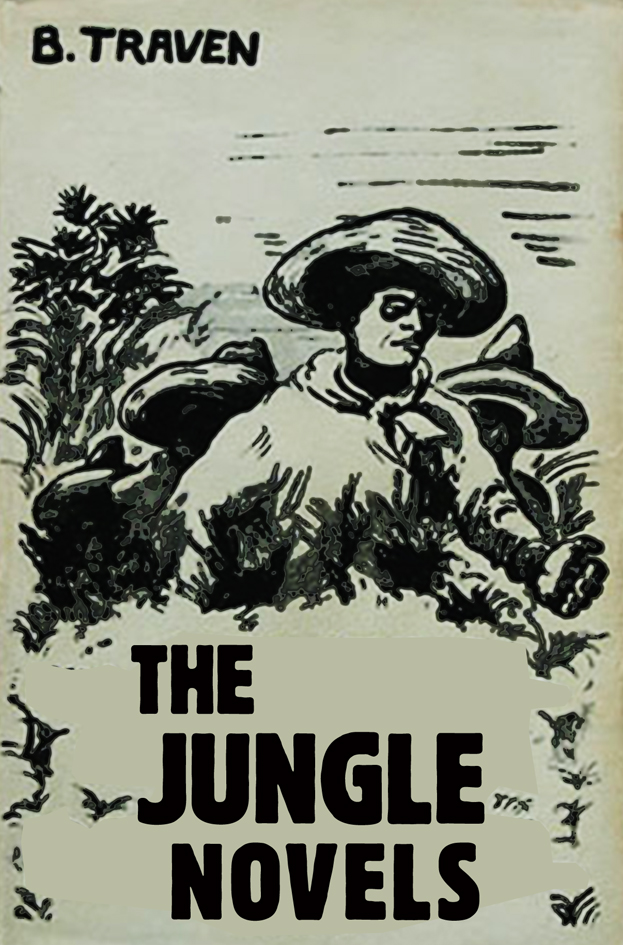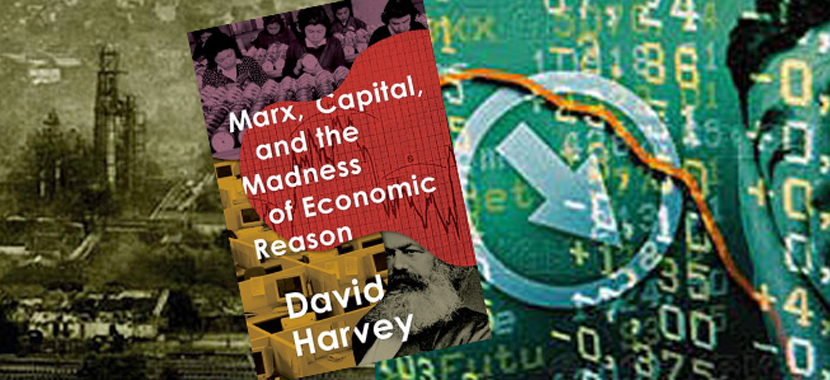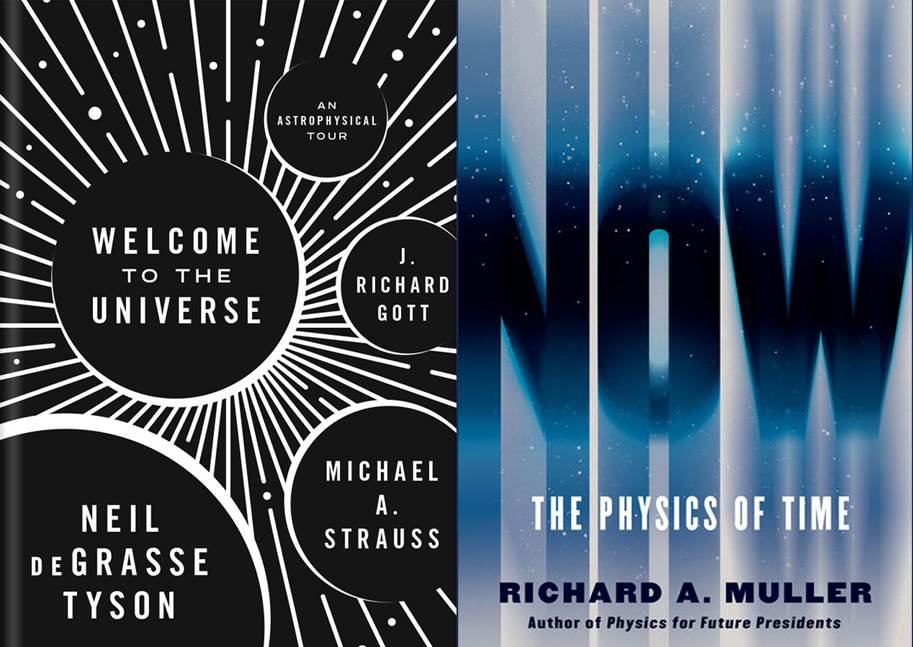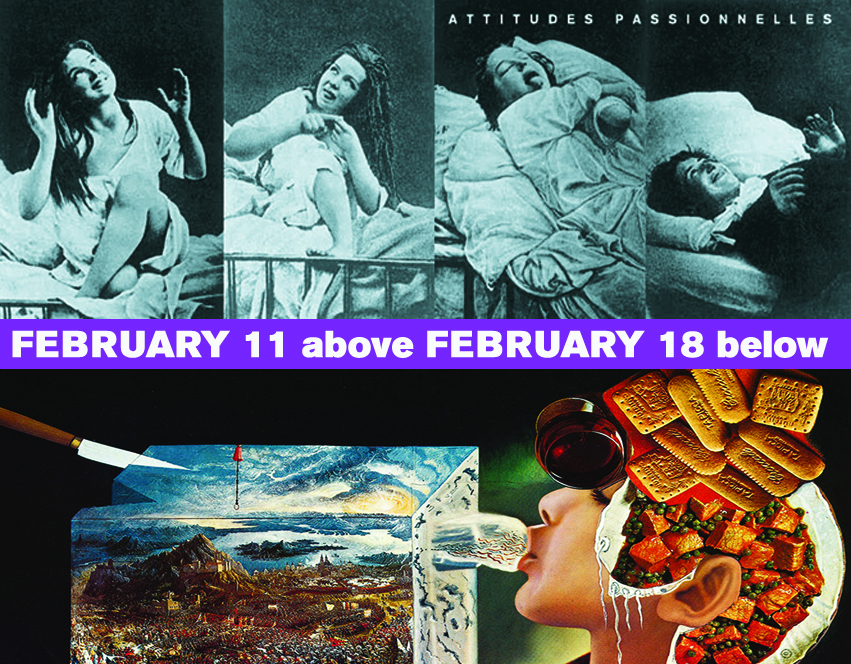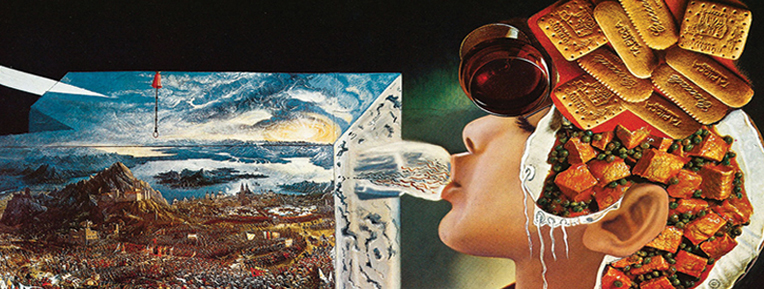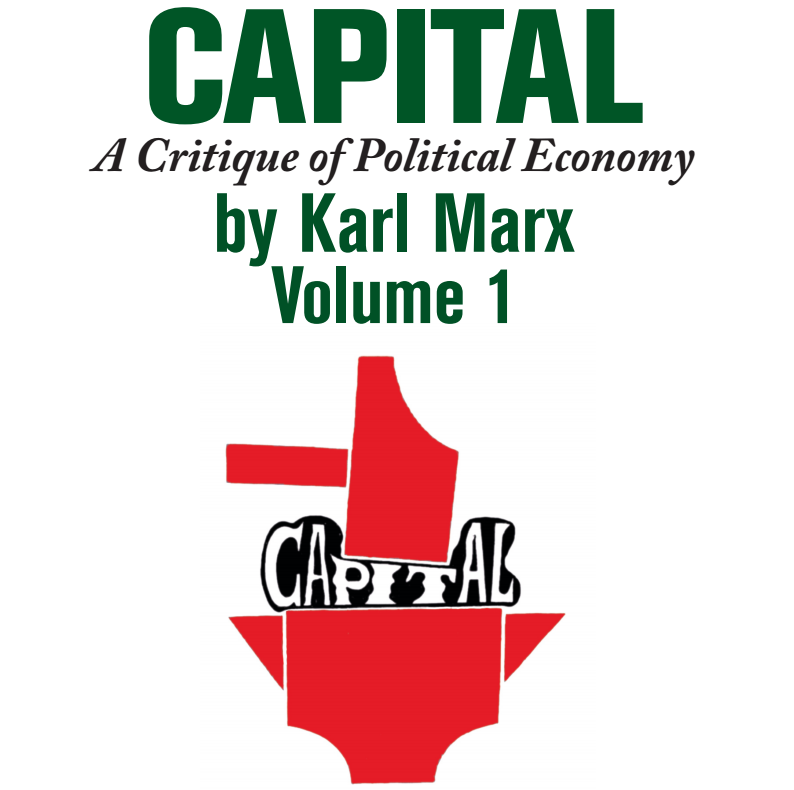Calendar of Events
S Sun
M Mon
T Tue
W Wed
T Thu
F Fri
S Sat
1 event,
A People’s History of the World
A People’s History of the World
Convened by Branden Rippey Downtown Newark on Orchard Street Using A People’s History of the World by Chris Harman, this course will study the broad trends in the history of our world, from early human civilization to today. We will complete the book during this term, covering events from 1750 through our present day. The ... Read more
2 events,
Degenerate!: Art and the State
Degenerate!: Art and the State
...we travel to postwar America, where the elites also held that art should fulfill an ideological (if not overtly political) function, but were politically compelled to denigrate both Nazi and now Soviet control over culture. The CIA worked alongside corporations to install “corporate” non-partisan, inoffensive art that celebrated the individual (i.e. capitalist and not communist) and denigrated anything containing possible, even hinted at, socialist leanings. Abstraction, particularly Abstract Expressionism became their rallying cry.
Revolution in China: 1911-1949
Revolution in China: 1911-1949
Of 20th-century revolutions, the upheaval in China that culminated in the declaration in 1949 of the People’s Republic was arguably just as significant as the Russian Revolution of 1917. Beginning this January, the Revolutions Reading Group undertakes an in-depth study of that 40-year struggle, from the overthrow of the monarchy in 1911 to the victory of the Communist Party after World War II.
1 event,
Manuals On Organizing, Version 1
Manuals On Organizing, Version 1
This group will read over the next period a number of books on raising consciousness, organization and various methods and theories on how to develop a strong anti-capitalist movement.
0 events,
2 events,
Climate Crisis, Climate Justice, Climate Fiction
Climate Crisis, Climate Justice, Climate Fiction
This study group will examine the dire situations ordinary people confront as climate change and related crises accelerate, and the struggles for climate and environmental justice that are arising to meet these challenges. We will look at such cases as Puerto Rico (Irma-Maria), New York (Sandy), and the Mideast (drought, wars, refugees), through lenses provided by Ashley Dawson, Christian Parenti, and others.
B. Traven’s Jungle Novels
B. Traven’s Jungle Novels
Traven’s purpose in the Jungle Novels is to describe the conditions of a people who are ripe for change, and to trace the beginnings of how consciousness changes and sometimes leads to revolt.
0 events,
1 event,
Marx, Capital, and the Madness of Economic Reason, Part 2
Marx, Capital, and the Madness of Economic Reason, Part 2
From the book: “...a potential tendency for capital in searching to maximise its monetary profit to be drawn to invest in areas that produce no value or surplus value at all. Taken to extremes, either of these tendencies could be fatal to the reproduction of capital. In combination, and the contemporary evidence is that both trends are discernible, they could be catastrophic” (Marx, Capital, and the Madness of Economic Reason, David Harvey, Oxford University Press, p.105).
1 event,
A People’s History of the World
A People’s History of the World
Convened by Branden Rippey Downtown Newark on Orchard Street Using A People’s History of the World by Chris Harman, this course will study the broad trends in the history of our world, from early human civilization to today. We will complete the book during this term, covering events from 1750 through our present day. The ... Read more
3 events,
The Universe: Past, Present, Future
The Universe: Past, Present, Future
This class is for all who desire to explore together the mysteries and fascinations of our universe. No prior knowledge of astrophysics or mathematics is required. Together we will get to the bottom of a number of concepts that are widely discussed but poorly understood.
Degenerate!: Art and the State
Degenerate!: Art and the State
...we travel to postwar America, where the elites also held that art should fulfill an ideological (if not overtly political) function, but were politically compelled to denigrate both Nazi and now Soviet control over culture. The CIA worked alongside corporations to install “corporate” non-partisan, inoffensive art that celebrated the individual (i.e. capitalist and not communist) and denigrated anything containing possible, even hinted at, socialist leanings. Abstraction, particularly Abstract Expressionism became their rallying cry.
Revolution in China: 1911-1949
Revolution in China: 1911-1949
Of 20th-century revolutions, the upheaval in China that culminated in the declaration in 1949 of the People’s Republic was arguably just as significant as the Russian Revolution of 1917. Beginning this January, the Revolutions Reading Group undertakes an in-depth study of that 40-year struggle, from the overthrow of the monarchy in 1911 to the victory of the Communist Party after World War II.
1 event,
Manuals On Organizing, Version 1
Manuals On Organizing, Version 1
This group will read over the next period a number of books on raising consciousness, organization and various methods and theories on how to develop a strong anti-capitalist movement.
0 events,
2 events,
Climate Crisis, Climate Justice, Climate Fiction
Climate Crisis, Climate Justice, Climate Fiction
This study group will examine the dire situations ordinary people confront as climate change and related crises accelerate, and the struggles for climate and environmental justice that are arising to meet these challenges. We will look at such cases as Puerto Rico (Irma-Maria), New York (Sandy), and the Mideast (drought, wars, refugees), through lenses provided by Ashley Dawson, Christian Parenti, and others.
B. Traven’s Jungle Novels
B. Traven’s Jungle Novels
Traven’s purpose in the Jungle Novels is to describe the conditions of a people who are ripe for change, and to trace the beginnings of how consciousness changes and sometimes leads to revolt.
0 events,
1 event,
Marx, Capital, and the Madness of Economic Reason, Part 2
Marx, Capital, and the Madness of Economic Reason, Part 2
From the book: “...a potential tendency for capital in searching to maximise its monetary profit to be drawn to invest in areas that produce no value or surplus value at all. Taken to extremes, either of these tendencies could be fatal to the reproduction of capital. In combination, and the contemporary evidence is that both trends are discernible, they could be catastrophic” (Marx, Capital, and the Madness of Economic Reason, David Harvey, Oxford University Press, p.105).
2 events,
A People’s History of the World
A People’s History of the World
Convened by Branden Rippey Downtown Newark on Orchard Street Using A People’s History of the World by Chris Harman, this course will study the broad trends in the history of our world, from early human civilization to today. We will complete the book during this term, covering events from 1750 through our present day. The ... Read more
Politics of the Unconscious: Second Sessions
Politics of the Unconscious: Second Sessions
We will look at the images of the mental patients in the fin-de-siècle Parisian hospital Salpêtrière, many of which challenge the boundary between artistic representation and medical documentation. In light of day one, during the following Sunday, over a Surrealist Brunch,
3 events,
The Universe: Past, Present, Future
The Universe: Past, Present, Future
This class is for all who desire to explore together the mysteries and fascinations of our universe. No prior knowledge of astrophysics or mathematics is required. Together we will get to the bottom of a number of concepts that are widely discussed but poorly understood.
Degenerate!: Art and the State
Degenerate!: Art and the State
...we travel to postwar America, where the elites also held that art should fulfill an ideological (if not overtly political) function, but were politically compelled to denigrate both Nazi and now Soviet control over culture. The CIA worked alongside corporations to install “corporate” non-partisan, inoffensive art that celebrated the individual (i.e. capitalist and not communist) and denigrated anything containing possible, even hinted at, socialist leanings. Abstraction, particularly Abstract Expressionism became their rallying cry.
Revolution in China: 1911-1949
Revolution in China: 1911-1949
Of 20th-century revolutions, the upheaval in China that culminated in the declaration in 1949 of the People’s Republic was arguably just as significant as the Russian Revolution of 1917. Beginning this January, the Revolutions Reading Group undertakes an in-depth study of that 40-year struggle, from the overthrow of the monarchy in 1911 to the victory of the Communist Party after World War II.
1 event,
Manuals On Organizing, Version 1
Manuals On Organizing, Version 1
This group will read over the next period a number of books on raising consciousness, organization and various methods and theories on how to develop a strong anti-capitalist movement.
0 events,
2 events,
Climate Crisis, Climate Justice, Climate Fiction
Climate Crisis, Climate Justice, Climate Fiction
This study group will examine the dire situations ordinary people confront as climate change and related crises accelerate, and the struggles for climate and environmental justice that are arising to meet these challenges. We will look at such cases as Puerto Rico (Irma-Maria), New York (Sandy), and the Mideast (drought, wars, refugees), through lenses provided by Ashley Dawson, Christian Parenti, and others.
B. Traven’s Jungle Novels
B. Traven’s Jungle Novels
Traven’s purpose in the Jungle Novels is to describe the conditions of a people who are ripe for change, and to trace the beginnings of how consciousness changes and sometimes leads to revolt.
0 events,
1 event,
Marx, Capital, and the Madness of Economic Reason, Part 2
Marx, Capital, and the Madness of Economic Reason, Part 2
From the book: “...a potential tendency for capital in searching to maximise its monetary profit to be drawn to invest in areas that produce no value or surplus value at all. Taken to extremes, either of these tendencies could be fatal to the reproduction of capital. In combination, and the contemporary evidence is that both trends are discernible, they could be catastrophic” (Marx, Capital, and the Madness of Economic Reason, David Harvey, Oxford University Press, p.105).
2 events,
A People’s History of the World
A People’s History of the World
Convened by Branden Rippey Downtown Newark on Orchard Street Using A People’s History of the World by Chris Harman, this course will study the broad trends in the history of our world, from early human civilization to today. We will complete the book during this term, covering events from 1750 through our present day. The ... Read more
Politics of the Unconscious and Surrealist Brunch
Politics of the Unconscious and Surrealist Brunch
Over brunch, discover some of the grotesque dances by Valeska Gert (Weimar Era), and dance-theater of Pina Bausch and Mats Ek (1970s-80s). Dada and surrealism will not be left behind. We will explore how the aesthetic de-hierarchicalization and commodity culture inform our practices as witnesses and witnessed art makers.
3 events,
The Universe: Past, Present, Future
The Universe: Past, Present, Future
This class is for all who desire to explore together the mysteries and fascinations of our universe. No prior knowledge of astrophysics or mathematics is required. Together we will get to the bottom of a number of concepts that are widely discussed but poorly understood.
Degenerate!: Art and the State
Degenerate!: Art and the State
...we travel to postwar America, where the elites also held that art should fulfill an ideological (if not overtly political) function, but were politically compelled to denigrate both Nazi and now Soviet control over culture. The CIA worked alongside corporations to install “corporate” non-partisan, inoffensive art that celebrated the individual (i.e. capitalist and not communist) and denigrated anything containing possible, even hinted at, socialist leanings. Abstraction, particularly Abstract Expressionism became their rallying cry.
Revolution in China: 1911-1949
Revolution in China: 1911-1949
Of 20th-century revolutions, the upheaval in China that culminated in the declaration in 1949 of the People’s Republic was arguably just as significant as the Russian Revolution of 1917. Beginning this January, the Revolutions Reading Group undertakes an in-depth study of that 40-year struggle, from the overthrow of the monarchy in 1911 to the victory of the Communist Party after World War II.
1 event,
Manuals On Organizing, Version 1
Manuals On Organizing, Version 1
This group will read over the next period a number of books on raising consciousness, organization and various methods and theories on how to develop a strong anti-capitalist movement.
1 event,
Highlights of Marx’s Capital, Volume 1
The course provides a basic grounding for participants to pursue further study on their own or collectively. We’ll refer to new resources such as on-line and visual aids and current articles that illustrate capitalism’s developmental tendencies, which Marx calls its laws of motion. This highlights class is for women only. Everyone who identifies as a woman is welcome.
3 events,
Climate Crisis, Climate Justice, Climate Fiction
Climate Crisis, Climate Justice, Climate Fiction
This study group will examine the dire situations ordinary people confront as climate change and related crises accelerate, and the struggles for climate and environmental justice that are arising to meet these challenges. We will look at such cases as Puerto Rico (Irma-Maria), New York (Sandy), and the Mideast (drought, wars, refugees), through lenses provided by Ashley Dawson, Christian Parenti, and others.
B. Traven’s Jungle Novels
B. Traven’s Jungle Novels
Traven’s purpose in the Jungle Novels is to describe the conditions of a people who are ripe for change, and to trace the beginnings of how consciousness changes and sometimes leads to revolt.
2 events,
Marx, Capital, and the Madness of Economic Reason, Part 2
Marx, Capital, and the Madness of Economic Reason, Part 2
From the book: “...a potential tendency for capital in searching to maximise its monetary profit to be drawn to invest in areas that produce no value or surplus value at all. Taken to extremes, either of these tendencies could be fatal to the reproduction of capital. In combination, and the contemporary evidence is that both trends are discernible, they could be catastrophic” (Marx, Capital, and the Madness of Economic Reason, David Harvey, Oxford University Press, p.105).
2 events,
A People’s History of the World
A People’s History of the World
Convened by Branden Rippey Downtown Newark on Orchard Street Using A People’s History of the World by Chris Harman, this course will study the broad trends in the history of our world, from early human civilization to today. We will complete the book during this term, covering events from 1750 through our present day. The ... Read more
4 events,
The Universe: Past, Present, Future
The Universe: Past, Present, Future
This class is for all who desire to explore together the mysteries and fascinations of our universe. No prior knowledge of astrophysics or mathematics is required. Together we will get to the bottom of a number of concepts that are widely discussed but poorly understood.
Degenerate!: Art and the State
Degenerate!: Art and the State
...we travel to postwar America, where the elites also held that art should fulfill an ideological (if not overtly political) function, but were politically compelled to denigrate both Nazi and now Soviet control over culture. The CIA worked alongside corporations to install “corporate” non-partisan, inoffensive art that celebrated the individual (i.e. capitalist and not communist) and denigrated anything containing possible, even hinted at, socialist leanings. Abstraction, particularly Abstract Expressionism became their rallying cry.
Revolution in China: 1911-1949
Revolution in China: 1911-1949
Of 20th-century revolutions, the upheaval in China that culminated in the declaration in 1949 of the People’s Republic was arguably just as significant as the Russian Revolution of 1917. Beginning this January, the Revolutions Reading Group undertakes an in-depth study of that 40-year struggle, from the overthrow of the monarchy in 1911 to the victory of the Communist Party after World War II.
2 events,
Manuals On Organizing, Version 1
Manuals On Organizing, Version 1
This group will read over the next period a number of books on raising consciousness, organization and various methods and theories on how to develop a strong anti-capitalist movement.
3 events,
Climate Crisis, Climate Justice, Climate Fiction
Climate Crisis, Climate Justice, Climate Fiction
This study group will examine the dire situations ordinary people confront as climate change and related crises accelerate, and the struggles for climate and environmental justice that are arising to meet these challenges. We will look at such cases as Puerto Rico (Irma-Maria), New York (Sandy), and the Mideast (drought, wars, refugees), through lenses provided by Ashley Dawson, Christian Parenti, and others.
B. Traven’s Jungle Novels
B. Traven’s Jungle Novels
Traven’s purpose in the Jungle Novels is to describe the conditions of a people who are ripe for change, and to trace the beginnings of how consciousness changes and sometimes leads to revolt.
2 events,
Capital: Volume 1
Capital: Volume 1
This group will meet each Saturday to discuss Volume One of Capital. There will be a close reading of the text. All questions on each section will be addressed and the reading discussion leaders will be prepared to assist between sessions on areas that may be difficult to understand.

